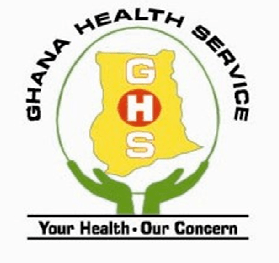Ghana Health Service raises concern about obesity, overweight among children – Ghana Business News
The Ghana Health Service (GHS) has expressed worry about rising cases of overweight and obesity in children.
Mr Joseph Owusu Asante, a nutritionist at the Nutrition Unit of the Bono Regional Health Directorate attributed the situation to over-nutrition and urged families to be interested in managing the eating habits of their children.
Describing it as alarming, he said if parents failed to do so, and to manage the weight of their children, it would cause the children health problems at 40 years and above.
Besides their eating habits, Mr Asante said it was imperative for families to allow their children to engage in physical activities like playing and engaging in household chores like washing clothes, cleaning, sweeping and cooking.
Speaking at a stakeholder meeting the African Vaccination Week (AVW) and the Child Health Promotion Week (CHPW) in Sunyani, Mr Asante said regular intake of junk and processed foods would not do the child any good now and in future.
The Bono Regional Directorate of Health organised the meeting to raise awareness among stakeholders and the public about the importance of immunization and the full spectrum of child health services available in the country.
It served as a platform to strengthen collaboration among key stakeholders, including government agencies, development partners, community leaders, health professionals, and the media.
Mr Asante said the child’s total success in life depended, largely on nutrition, saying over-nutrition had serious health implications.
On breastfeeding, he said the region had achieved some successes between 2022 and 2024, saying in 2024, it achieved about 95.1 percent in continued breastfeeding at one year, 71 percent in 2023 and 93.3 percent in 2022.
He said exclusive breastfeeding rate at three months also recorded 90.5 percent in 2024, 84.8 percent in 2023 and 85.3 percent in 2022, adding that early initiation of breastfeeding rat also had some good figures of 95.6 percent in 2024, 94.4 percent in 2023 and 91.7 percent in 2022.
Mr Asante said it was mandatory for every child between six and five years to be given free Vitamin “A” supplement to protect them against diseases, as Vitamin “A” deficiency remained the leading cause of preventable child blindness and it was unfortunate that the Vitamin “A” coverage for children aged 6-11 months was good, exceeding 90 percent each year; but children aged 12-59 months were below 50 percent.
He attributed the low coverage in children 12-59 months to low Child Welfare Clinic attendance because of early enrolment of children in schools emphasising that Vitamin “A” had essential micronutrients that fight infections, save the sight of children and promote the child’s survival, health, proper holistic growth and development of children.
Dr Prince Quarshie, the Deputy Director, Public Health at the Bono Regional Directorate of Health, called on the stakeholders to support the GHS in the implementation of government interventions to achieve useful health outcomes in the region.
The AVW was established in 2010 by the World Health Organization (WHO) to promote immunization as a lifesaving intervention and celebrated annually every week of April (24th to 30th).
With the CHPW, Dr Quarshie explained that it was introduced in 2004 by the Ministry of Health to improve child survival rates in the country and observed on May 5, to May 9, focusing on nutrition, immunization and preventive care for children under five years.
Source: GNA
The post Ghana Health Service raises concern about obesity, overweight among children appeared first on Ghana Business News.

